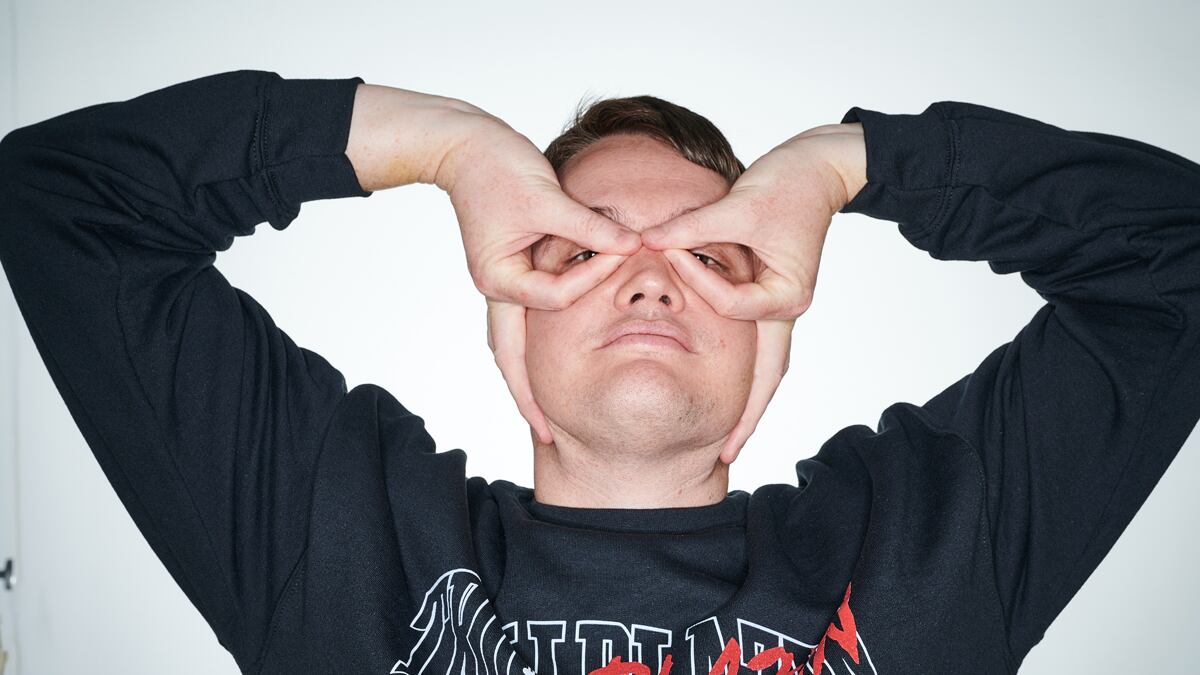Right before the pandemic blew up life as we knew it, Seth Allen was bombing.
It was unheard of for the now-37-year-old comic to get through an entire show without a single laugh, but it was impressive that he completed his scheduled sets at a 2020 Iowa comedy festival at all, considering the circumstances.
“I went out with some much younger comics the night before and tried to drink with them,” Allen says. “I was sick and dead all the next day. That was the last comedy memory before [COVID].”
He had hoped to quickly wipe the experience from his mind by telling jokes without a hangover, but that would have to wait. As the coronavirus began to spread across the U.S., venues went dark.
“Before I started doing comedy—my wife would validate this—I was a much more miserable person. I was grumpy, moody, very needy,” Allen explains, drawing out the “e” sound for emphasis. “I did feel myself slipping back into kind of a worse mental state like I was before doing comedy.”
Now that all local pandemic restrictions have been lifted, the native Oregonian is booking shows at an accelerating clip, which sometimes has him performing late into the evening every other day of the week at venues as far away as Salem right now, with more to come this summer in northern Washington.
Based on Allen’s jokes alone, you’d never guess he used to struggle with anxiety and depression. His sets gleefully bounce from subjects like Cheez-It hogging to messing with his wife’s jigsaw puzzles to getting attacked by a crow.
Onstage, Allen leads you through personal scenarios with a mixture of innocence, bewilderment and mischievousness. It’s a character developed over time that he articulately describes as the “surprised participant.”
“In most of my stories, I’m there,” he explains. “It’s a surprise to me, and the more surprised I am to be in the situation, and the deeper my participation is in whatever is happening, the funnier it becomes for people.”
Allen’s 11-year marriage is the basis for some of his most memorable tales, since he mines the differences between him and his wife (she’s Black, he’s white; she’s from New York City, he grew up in Yamhill; she’s 10 years his senior) for humor.
“It surprises people that we’re together because of our personalities, because of our race,” he says casually in one bit. After a brief pause, he swivels his head upward and makes a full sweep of the crowd, unleashing, “But it’s really, like, when she calls me the N-word in public—that’s when it really shocks people.”
Other than being known as a class clown in school—examples of his antics include responding to a teacher using only verses from famous country songs and peeing his pants on purpose to help his friend get elected treasurer—Allen was never one to rile people up before he tried comedy.
In fact, at the University of Minnesota, he earned a master’s degree in human resources, and he’s worked in the field ever since, which is a bit ironic given the job’s decidedly humorless portrayal in popular media.
“I pursued it, hard,” Allen laughs. “I’ve always been a very security-seeking personality.”
Allen finally gave himself permission to give standup a shot one day before turning 30. He got heckled at an open mic at the now-shuttered Boiler Room, but while decompressing at a nearby pizzeria after the show, he realized that he was hooked.
“Sitting at the table, I was excited, but I was kind of scared, because I was like, ‘I’m going to keep doing this,’” he says. “I’m not a confident person in most things, but for standup I felt like I could figure it out.”
Turns out, his instinct was right. Just don’t call standup his form of personal therapy.
“There was a basketball player who was an alcoholic, and he replaced [drinking] with basketball and got really good,” Allen says. “But he’s still an addict. I wouldn’t say therapy, because I haven’t healed anything. I’ve just moved it somewhere else successfully.”

